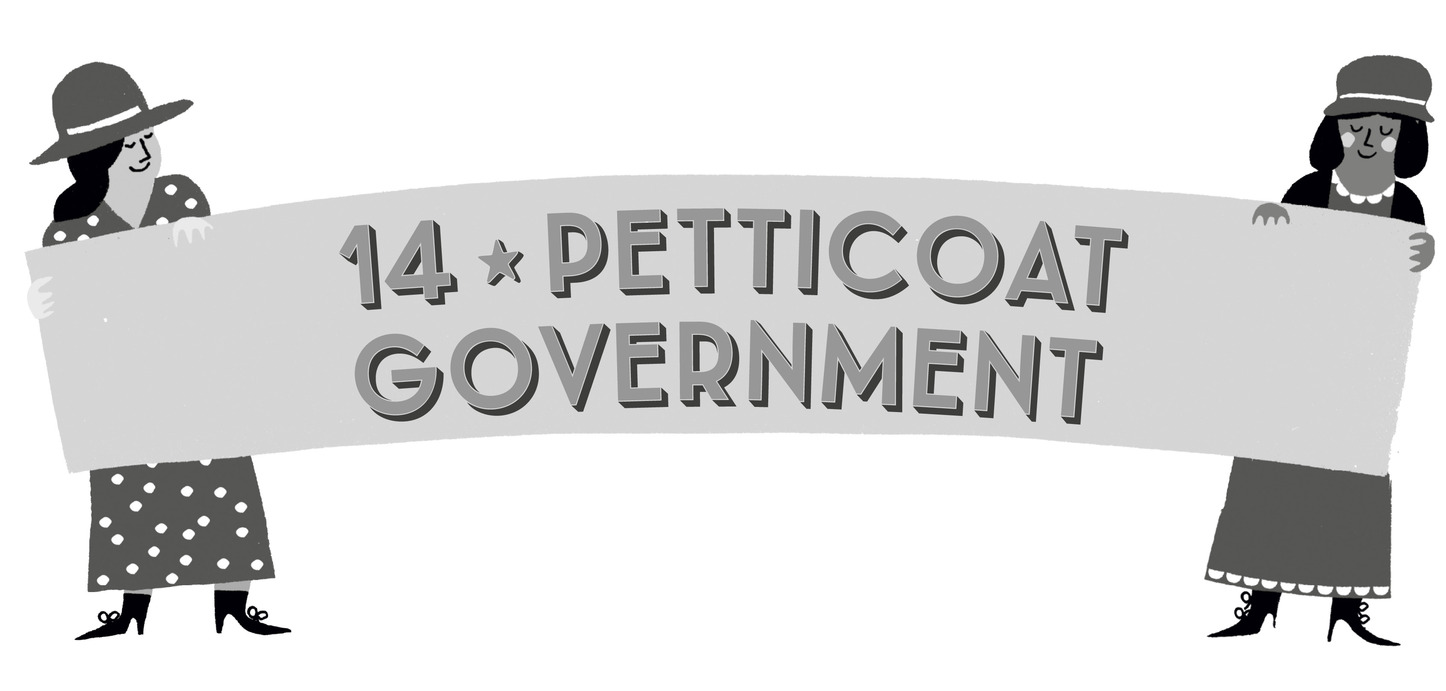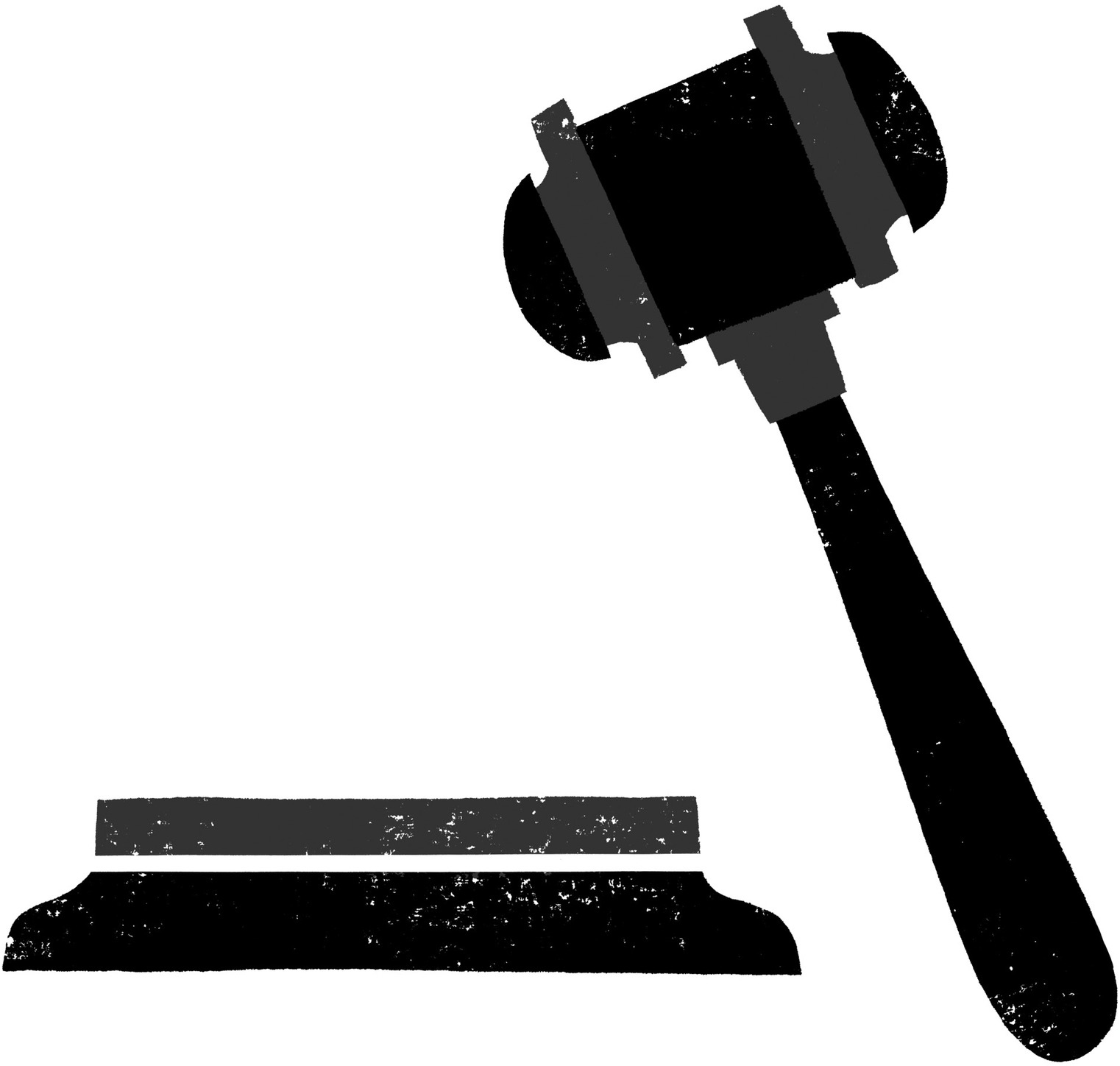
Ratification would come down to a few simple numbers.
In the senate, the Suffs needed only seventeen out of thirty-three senators to support the amendment. There, things were looking good.
But in the house, the Suffs faced a tougher battle. And no one could predict when the ratification resolution would finally make it to the floor. The vote count kept fluctuating—and trending downward.
On Friday morning, a throng of Suffs and Antis pushed through the doors of the senate gallery, scrambling to grab a good seat. They were in for quite a show.
Andrew Todd gaveled the senate to order. The crowd hushed and faced forward. A senator stood. In his hands was a crisp piece of paper with neatly typewritten words on it. Here, finally, was the majority report of the Constitutional Amendments Committee.
The senator cleared his throat and began. The committee “is of the opinion that the present Legislature has both a legal and moral right to ratify the proposed resolution,” he reported. “National woman’s suffrage by Federal amendment is at hand,” the senators wrote, “it may be delayed, but it cannot be defeated; and we covet for Tennessee the signal honor of being the 36th and last state necessary to consummate this great reform.”
Cheers from the balcony rang out. Suffs hugged, laughing and squeezing one another’s hands.
Senator Ernest Haston, the Suffs’ floor leader in the senate, rose to place the ratification resolution itself before the senate for passage. There was a rustle of movement as the chamber braced for the main attraction. Senator Herschel Candler took the floor.
Anita Pollitzer squinted at him from her spot in the gallery. She remembered Herschel Candler. He’d given her a firm, square no when she’d reached out to him about supporting suffrage. Whatever he was about to say now wasn’t going to do the Cause any favors.
Herschel saw himself as a man of the law. Lately, though, he’d felt abandoned by his Republican Party. He was trying to prevent woman’s suffrage from infecting the nation. Women and politics? They had no business mixing. And now, glancing around the chamber, he saw women lobbyists in the crowds, in the balconies. Women who should be at home. Instead, they were invading the senate. It sickened him.
This federal amendment for woman’s suffrage will destroy politics as we know it! Herschel began, loudly addressing the chamber. He insisted they couldn’t be dominated by those Suffs and their “petticoat politics….If there is anything I despise, it is a man who is under petticoat government!”
By now, his voice had risen to a full-on yell. The Suffs in the audience hissed at him.
“You are being dictated to by an old woman down here at the Hermitage Hotel whose name is Catt. Mrs. Catt is nothing more than an anarchist,” he continued with disgust. Now even some of his fellow senators were booing Herschel.
“They would drag the womanhood of Tennessee down to the level of the negro woman!” Protests rained on him from every corner of the chamber. He steadied himself to make his final point. “Within a very few years after this amendment has passed, you will find that Congress has legislated so as to compel we people of the South to give to the negro men and women their full rights at the ballot box,” he warned in a shrill voice. “Then you will find many of your counties, now dominated by the Democrats and white people, sending up negro representatives to this house.”
The chamber broke into a frenzy of gasps as he sat down. Even his colleagues and the Antis were embarrassed by Herschel’s emotional outburst. The Tennessee Suffs were outraged.
Harry Burn was sitting toward the back. He listened and did not speak. He admired Herschel Candler—Harry thought he was an excellent lawyer and a judicious man. In fact, Harry was studying law under Herschel’s guidance. A young, ambitious man like Harry couldn’t find a better model or mentor than Herschel Candler. But Herschel’s uncontrolled outburst was jarring. He was speaking way out of line. It made Harry feel uncomfortable. Even a little angry.
Speaker Andrew Todd tried to calm the room in a stern but soothing tone: “That is the most unfortunate speech that has ever been made upon the floor of the senate….These slurs do not meet approval of the good women of Tennessee,” Andrew said in rebuttal, though clearly meaning the white women.
After Herschel Candler’s outburst, the men of the senate all competed for a chance to speak up and sound knowledgeable and convincing. For almost three hours, a steady parade of them took the floor. Some rehashed the old arguments against mixing women and politics. Others made the case to ratify. Most condemned Herschel Candler’s bitter remarks.

John Houk, Republican senator from the Knoxville area, stood to make a ringing speech. “In all my life I have never heard a sound argument against giving woman the right to vote: a woman is a human being and so is entitled to a vote in the making of laws affecting her and her children.” Speaker Todd rapped his gavel to quiet the loud cheering.
More senators stood to make heartfelt entreaties for ratification. “I am voting for ratification because suffrage is right and just, not just because it aids either party,” declared Albert Hill, upon whom the Suffs knew they could rely. “I believe that with equal suffrage we will have a better country and better government.”
Erastus Patton of Knoxville gave a rallying cry that brought all yellow-flowered spectators to their feet: “Let’s make Tennessee the Perfect 36th!”
Lunchtime came and went. Stomachs grumbled throughout the chamber. But the senators still had work to do. Their time to vote on the ratification resolution had finally arrived. The Suffs squeezed one another’s hands anxiously. Would they have enough men to carry through the amendment?

The roll call moved swiftly. An electric tension vibrated through the chamber. Before the Suffs knew it, the “aye” votes were climbing toward seventeen. Senator John Houk’s “aye” was number fourteen on Sue White’s tally sheet. “Aye” numbers fifteen and sixteen rolled in next. The clamor in the galleries grew louder. Everyone wearing yellow was up on their feet.
“Matthews,” the clerk called out.
“Aye,” replied Matthews, and as the seventeenth vote in favor was cast, the gallery exploded in cheers and cries, waving of yellow banners, and deafening applause.
Speaker Todd banged his gavel repeatedly, but the Suffs didn’t care. They knew they’d won the senate! They were halfway there, with just the house vote left.
All the way from the Hotel Hermitage, Carrie Catt and Harriet Upton could hear the cheers drifting up toward their windows.